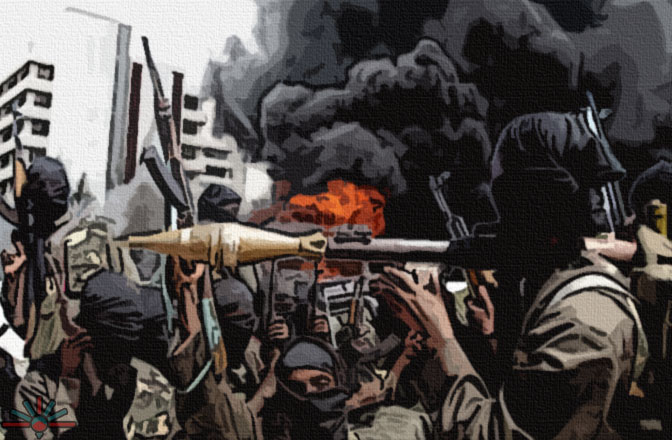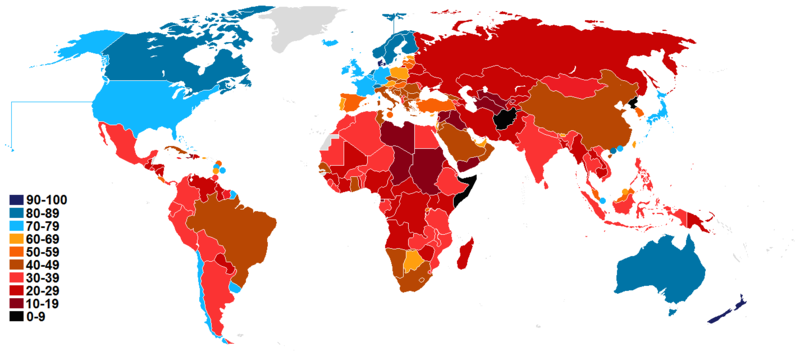In a country renowned for the endemic corruption of its
resource and public sectors over the past four decades, the recent discovery of
widespread contract fraud should come as little shock to observers familiar
with Nigeria’s moribund political economy.
Yet even in a state with such persistent corruption, the collective
defrauding of $241
million dollars in revenue from the state by an assortment of 300
firms, individuals, and army officers almost beggars the imagination. While contractor fraud is admittedly
unsurprising in a society where the comprehensiveness of anti-corruption
legislation is matched only by the vigor of regime’s public officials in
looking the other way, it does raise a further concern regarding the use of
private contractors for developing states.
To what extent do private military, security, and supply companies pose
a threat of corruption to the regimes they service? Given the case of Nigeria, it would appear
that this question ultimately depends upon the client, as the risk of
contractor corruption looms largest in the very societies already plagued by
corruption throughout their society.
Bribery, Fraud, and Corruption are serious challenges plaguing Nigeria’s political and economic system (Wikimedia Commons).
On its surface, relying on professional corporations
specializing in providing weapons, equipment, and other services to bolster an
otherwise bungling Nigerian military seemed like a winning strategy against the
resilient terrorist group Boko Haram.
Indeed, as recently as the mid-1990s, Nigeria witnessed the
effectiveness of modern private military corporations in its own backyard as
contractors from Executive Outcomes saved the Sierra Leone regime from certain
defeat at the hands of the Revolutionary United Front (RUF). Dealing with its own ongoing battle with a
surprisingly resourceful rebel group able to kidnap over a hundred schoolchildren in
northern Nigeria, hiring professional corporations to equip its armed
forces theoretically offered a valuable force multiplier for Nigeria’s troops
and operations.

The terrorist threat
posed by Boko Haram is a serious security threat to Nigeria (Wikimedia
Commons).
Yet Nigeria’s political economy and society are neither
prepared nor equipped to monitor these contractors. Nigeria already suffers from widespread
corruption despite the best efforts of domestic and international
anti-corruption campaigns. Resource
revenues from the state’s oil windfalls over the past decades, for example,
were a source of corruption for the regime and companies alike. Moreover, corruption by public officials
remains commonplace and Nigeria consistently scores poorly on Transparency International’s
Corruption
Perceptions Index. In a state with
such lucrative opportunities for corruption, it is no wonder that government
arms and equipment contracts provided yet another source of fraud to exploit.

2013 Transparency
International Corruption Perceptions Index (Wikimedia Commons)
It would thus appear that the threat of contractor
corruption is most dire in societies already suffering high levels of
corruption and where the preexisting weak institutions, rule of law, and civil
society permit fraud to flourish.
Powerful and developed countries like the United States are other
western democracies have little to fear. Fortunately, they possess the resources and
institutions to monitor and catch such corruption before it reaches this stage,
as the $35 million Nigeria has recovered is a pittance of what its people know
it lost. Nevertheless, this incident
should serve as a valuable reminder that their agents to do not always act in
their best interest.
However, the question remains as to Nigeria’s campaign
against Boko Haram. Fortunately, news
from the front over the past year suggests that the war is progressing
well. Abuja’s necessity for contractor
services may thus continue to decline.
If demand remains, however, Nigeria can always resort to the tried and
tested method of acquiring equipment and training by partnering with other
international state actors interested in its security. Indeed, both France and the United States in
particular would likely be eager to assist Abuja in combating Boko Haram, and
at a far cheaper cost and the outright theft of their non-state competitors.




No comments:
Post a Comment